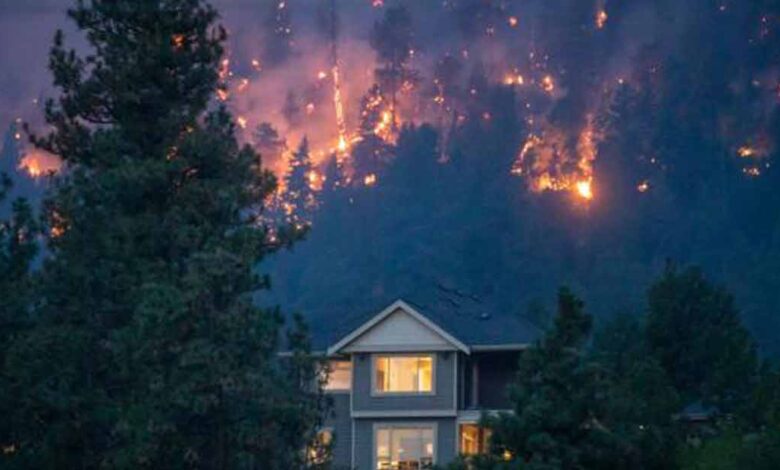
British Columbia’s Premier, David Eby, announced a provincial state of emergency on Friday evening due to an escalating wildfire crisis. Eby expressed that the province was confronted with its most severe wildfire season ever. Within the past 24 hours, the situation had rapidly deteriorated, with the number of evacuated homes skyrocketing from approximately 4,500 to around 15,000 individuals throughout the province.
Eby underscored that the emergency declaration was put into effect to ensure swift access to any necessary tools for addressing the crisis. Bowinn Ma, the Minister for Emergency Management and Climate Readiness, reiterated her prior call for people to avoid all non-essential travel to areas affected by fires, especially in the Central Interior and southeastern regions of the province.
The influx of evacuees and emergency personnel in fire-affected zones had created a shortage of accommodations, according to Ma. She strongly urged tourists and travelers to treat the situation with the same seriousness as the residents of the affected areas. The state of provincial emergency granted the ability to employ exceptional powers, potentially including legally binding orders that restrict travel to specific locations, for those who don’t adhere to the advisory against non-essential travel.
Late on Friday, Harjit Sajjan, the federal Minister of Emergency Preparedness, conveyed through social media that he had discussed the worsening situation with B.C. Forests Minister and that the federal government stood ready to provide support as needed.
As of Friday evening, there were a total of 380 active fires across British Columbia. During an earlier briefing, Ma revealed that approximately 2,500 people had to leave their homes in West Kelowna, Kelowna, and surrounding areas. The McDougall Creek fire, discovered on Tuesday, had expanded to over 6,000 hectares in size, as reported by the BC Wildfire Service.
Ma further emphasized refraining from traveling to the central Interior or southeastern regions during the ongoing surge in fire activity. The heightened fire risk in those areas due to the evolving situation necessitated such precautions.
Challenging weather conditions, including persistent winds following a heatwave that saw temperatures surpassing 40 degrees Celsius in several Interior areas, had intensified fires throughout the province on Thursday. The impact of these fires was expected to persist throughout the weekend, with the likelihood of more fires and extreme fire behavior in the upcoming days.
Cliff Chapman, the provincial operations director for the BC Wildfire Service, stated that the recent weather conditions compounded by the fires’ aggressive growth had created a formidable challenge. Several incidents were reported on Thursday night where individuals refused to heed evacuation orders, putting both themselves and emergency personnel at risk. Chapman emphasized that evacuation orders must be taken seriously and that now was not the time to ignore them.
In light of potential damage to homes, evacuees were strongly cautioned against returning to evacuated areas under any circumstances. The BC Wildfire Service was actively responding to numerous fires across southern British Columbia that had rapidly expanded due to windy conditions.
The McDougall Creek fire, threatening West Kelowna, had experienced significant growth overnight. Air tankers and ground crews were working to contain the fire, with structures and critical infrastructure at risk. Fires had also ignited on the east side of the lake in Kelowna, but it remained uncertain whether the McDougall fire had crossed the lake or if the new fires were unrelated.
The Kookipi Creek fire had seen explosive growth, with flames towering over trees up to 200 feet tall. Other fires in various locations, such as the Casper Creek complex west of Lillooet, the Stein Mountain fire, and the Downton Lake fire, had also experienced significant growth. Crews were making efforts to protect homes and structures in these areas.
Amid the battle against various fires, some positive progress was reported. The Horsethief Creek wildfire was challenged by winds in the southeast but wasn’t exacerbated significantly. The Ross Moore Lake fire and the Lower East Adams Lake fire were also being managed effectively.
As potential evacuations loomed, Ma recommended that individuals contact friends and family in advance to arrange accommodations, as hotels were already heavily booked due to the peak tourism season.









































